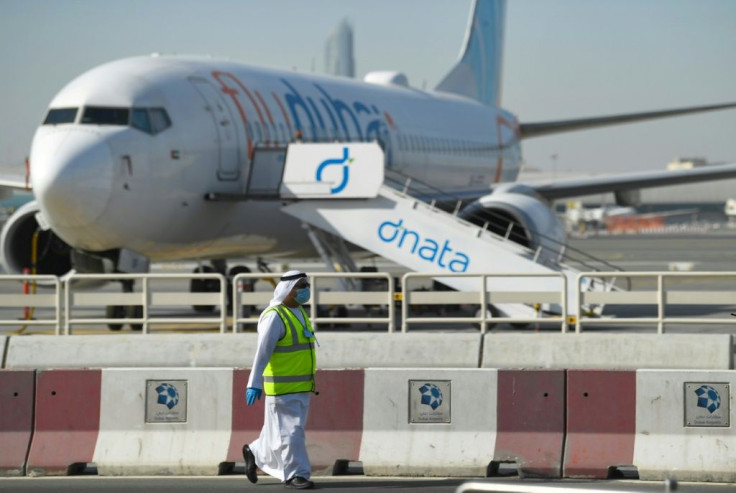Mideast Air Traffic To Plunge By Half On Virus Impact: IATA
Air traffic in the Middle East and North Africa is set to plummet by more than half this year due to the coronavirus pandemic, a global aviation body said Thursday.
"Airlines in the Middle East continue to be battered by the impact of COVID-19," said Muhammad Albakri of the International Air Transport Association.
"Passenger traffic has all but ground to a halt and revenue streams have evaporated."
Albakri, the IATA's vice-president for Africa and the Middle East said traffic would fall by at least 51 percent compared to last year.
MENA airlines' revenues slashed by $24.5 billion, he added.
Almost all the MENA region's 19 state-owned airlines and a dozen private carriers have been grounded amid strict measures to combat the spread of the coronavirus, including halting air traffic.
A few airlines have continued or resumed limited operations, including Qatar Airways, Emirates Airline and Etihad.

The International Civil Aviation Organization, a UN agency, said Wednesday that the pandemic could mean 1.2 billion fewer air passengers worldwide by September.
The IATA, an industry association, said the Middle East's aviation shutdown threatens some 1.2 million jobs -- 300,000 thousand more than a previous estimate three weeks ago and half the total jobs in the industry.
The estimates are based on a scenario that severe travel restrictions will last three months, before being gradually lifted for domestic flights, followed by regional and intercontinental services.
To minimise the damage to MENA economies, IATA urged governments to offer airlines direct financial support, loans and tax relief.
The body said it is meeting virtually this week with governments and airlines to ensure that the sector is ready to resume operations when the pandemic is contained.
"Starting up will be complicated. We need to make sure that the system is ready, have a clear vision of what is needed for a safe travel experience," Albakri said.
© Copyright AFP 2024. All rights reserved.





















